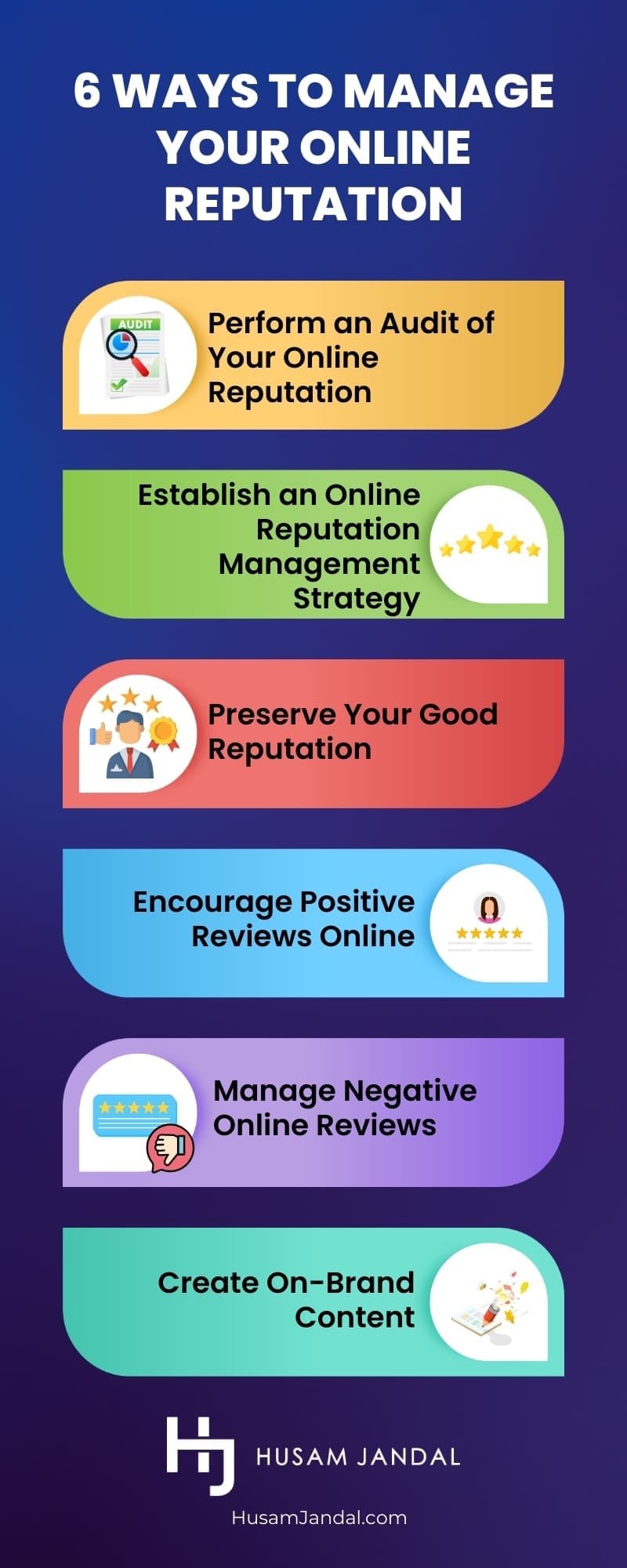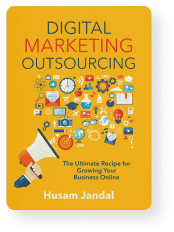
Last year, 87 percent of consumers read online reviews for local businesses, a six percent year-on-year hike according to BrightLocal research. More than a third checked them daily. If there’s information to be found about you or your business, rest assured people are looking for it. The question is, what will they find?
What Is Online Reputation Management (ORM)?
Online reputation management (ORM) is the process of shaping what potential customers read about you on the Internet to ensure you make a good first impression. It’s easier to do when you take a proactive approach, but, unfortunately, many people wait until a PR crisis arises. If you fit into the latter group, take heart. Your online reputation can still be fixed using the strategies I’ll outline in just a moment. However, you’ll have to be twice as diligent about following the process, and it can take time before you see results.
Why Reputation Management is Important for Your Online Presence
Four out of five people say they trust online reviews as much as personal recommendations from friends or family per BrightLocal surveys. It’s not surprising, then, that 92 percent will back away from a business when they read negative reviews. It’s just like having someone they personally know and trust telling them to be wary of a business.
On the bright side, 94 percent say they’re more likely to use a business if they see positive reviews. That means if you can shape perception through reputation management, you’ll not only save 92 percent of customers who might have otherwise bailed after reading negative content, but you can gain the trust of 94 percent and pick up even more customers too. Your online reputation is crucial to the health of your brand and company.
How to Manage Your Brand’s Online Reputation
Whether you’re taking a proactive approach so you can grow your business or you’re trying to clean up a damaged reputation, you’ll need to apply the same six steps.

1. Perform an Audit of Your Online Reputation
According to Search Engine Journal, nearly 30 percent of people click on the first listing in Google search results. That makes the search engine a great place to start researching what people may be seeing about you. Pop open an Incognito or Private browser and type in branded terms related to your business, including your company’s name, your name, and any product names or slogans. During your initial pass, you don’t need to dig too deep. Just hone in on the first few search results or first page, and you’ll know what most people are seeing. If you want to do a more detailed search, you can use specialized platforms that look for mentions for you.
It’s also a good idea to monitor for brand mentions after you’ve completed your search. Google Alerts is a free service that emails you when new content appears online with your chosen search terms.
2. Establish an Online Reputation Management Strategy
Once you know what’s out there, you can begin to craft an online reputation management strategy. A few things to consider:
What Are Your ORM Goals?
- Are you trying to do damage control after getting negative feedback online?
- Do you want more positive feedback online to help you attract new customers?
- Are you trying to build an online presence from scratch?
What Resources Can You Devote to ORM?
ORM is an ongoing process, and there’s always more you can do. Before you start anything, determine how much time and money you can invest in your reputation management project.
Which Tasks Will Produce the Most Meaningful Results?
Remember earlier how I said you didn’t have to go through pages and pages of Google results to address everything? Your return diminishes significantly after the first result. The third site listed in Google results only gets 11 percent of clicks! By the time you hit the sixth, you’re down to less than five percent, and the tenth result gets just 2.5 percent. Focus on the areas that will give you the most impact, so your investment goes further.
3. Preserve Your Good Reputation
If you don’t have a digital presence established yet, start with social media platforms. You’re going to want to start with Facebook, Twitter, LinkedIn, Pinterest, Instagram, Tumblr, and other popular sites to set up social media profiles. Even if a particular channel will never be useful to you for social media marketing, you should still reserve your name on it. This ensures competitors or anyone else can’t start using your name and tarnish your reputation.
It’s also a good idea to set up written guidelines for employees’ social media use. Even the most benign tweets can be taken out of context and harm your brand. Some companies even require employees to adjust their privacy settings to keep prying eyes out.
4. Encourage Positive Reviews Online

The more reviews you have, the better. Positive reviews can help you rank higher. Plus, customers prefer newer reviews over older ones. However, most won’t think to leave reviews online, so be proactive and request them. Be aware that some review sites have policies against incentivized reviews, so always check with the platform you plan to send customers to before launching a campaign.
5. Manage Negative Online Reviews
Unfortunately, you won’t have much luck getting negative comments removed from review sites like Yelp, but you can diminish their impact by getting more positive reviews and/or pushing negative information lower in search engines by creating high-quality content that ranks well. Blog postings on strong domains work best for this—if the website is a household name, it will likely outrank the damaging content. If you’re unsure which sites are strong, use a platform like Alexa Rankings or the Moz Domain SEO Analysis tool. Check the performance of the site that has negative content about you and the site that you’d like to use to create positive content that may bury it in search engines. If the site you want to use ranks better, there’s a good chance your post will drop the negative content in the rankings, so it’s seen and clicked less. Just be mindful to use the same keywords that appear in the negative commentary so your new content is always competing against the old for rank regardless of the search.
You’ll also need to respond to all reviews, including complaints. Even though it won’t eliminate the blemish on your company’s reputation, your thoughtful response will show you care, which can prevent people from forming a negative opinion about your brand. Plus, it can help you turn an unhappy customer into a loyal one again.
A final word of caution here. Avoid black-hat tactics to clear your name. Otherwise known as unethical, deceptive, or spammy techniques, black-hat tactics can actually make your reputation problem worse by getting your sites blacklisted from Google for poor quality or getting you banned from sites you might otherwise be able to leverage. Plus, sites like Google and Yelp have robust algorithms that usually detect black-hat methods, and they don’t help. If, by chance, you manage to find something that does work, you’re an algorithm shift away from being back at square one, and they do catch on to new techniques fast. It’s their business to do so.
6. Create On-Brand Content
Your branding is the set of signals that tells people what your company is about. It goes much deeper than logos and colors and includes your core philosophies, language used, and emotions your company evokes. For this reason, your branding is more powerful than SEO. When you’re true to your message and consistent across all channels, you build a more substantial business. Stronger businesses get more positive reviews and have better online reputations.
Get Help Managing Your Online Reputation
As a digital marketing pioneer with experience educating Google Partners and a background in business, I help growing companies improve their online reputations in a way that genuinely betters their overall standing. Whether you’re just starting out or need help correcting an online reputation issue, I have proven strategies that get results. Contact me for a complimentary consultation.
































































